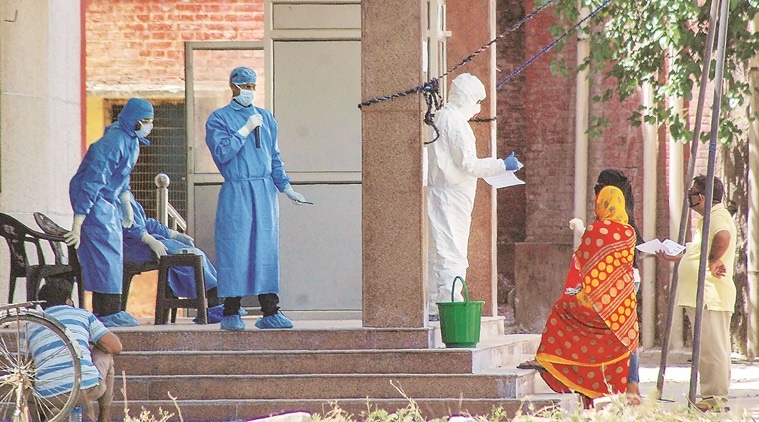 Health officials attend to people arriving for COVID-19 tests at a hospital in Kanpur on Tuesday. (PTI photo)
Health officials attend to people arriving for COVID-19 tests at a hospital in Kanpur on Tuesday. (PTI photo)
The InterAcademy Partnership (IAP) has asked all members to submit recommendations and provide their expertise to help contain the spread of COVID-19 cases at local, regional and national scales.
The Indian National Science Academy (INSA) and National Academy of Medical Sciences are two Indian academies that are members of the IAP.
In India, the Department of Science and Technology (DST) has called upon scientists and experts to share recommendations and expertise in the subject, so the same can be considered for policy and planning measures in the near future. Similar efforts are also underway at labs and research institutes operating under the Department of Biotechnology and Council of Scientific and Industrial Research (CSIR).
The recommendations have mainly been sought from the 140 members working in fields of science, medicine, engineering, bio-technology and bio-engineering and policy making.
IAP, in a recent letter to its members, said the scientific community must work together and help contain the spread of the virus in least developed African countries, where the rate of congregation is the highest. “Even though the infections and deaths are still rising rapidly in many countries in Europe, Asia and even in countries like the USA, we need to ensure maximum preparedness in low and middle income countries to detect and cope with COVID-19,” the statement read.
A special task force has been constituted in this regard, named the African Task Force for Coronavirus Preparedness and Response. The priority of this task, officials said, will be surveillance, laboratory testing capacity, healthcare preparedness and risk of communication.
“It is clear that such risk issued will be experienced in many countries in Asia and Latin America. All countries should contribute in global discussions on provision and allocation of healthcare and health support measures,” the appeal read.